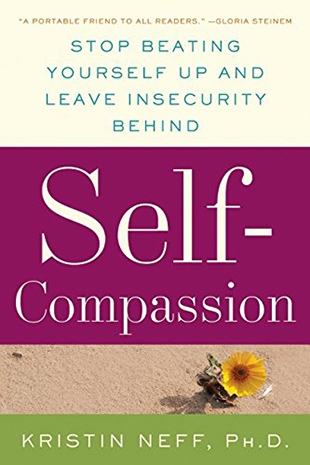"The practice of savoring is closely related to gratitude. Savoring refers to the conscious enjoyment of that which gives us pleasure; that is, lingering over delightful experiences, swishing them around in our awareness like a glass of good wine. We often think of savoring in terms of a sensual experience: noticing the subtle taste and aroma of our food rather than merely wolfing it down. Smelling, tasting, and caressing our lover's skin rather than merely 'doing the deed.' But savoring can be applied to all enjoyable experiences — reveling in the lovely sound of a friend's laughter, the beauty of a fallen leaf, the satisfying depth and complexity of a well-written novel.
"When we savor an experience, we hold it in mindful awareness, paying conscious attention to the pleasant thoughts, sensations, and emotions arising in the present moment. We can also savor delightful memories, so that we relive joyous experiences and appreciate them all over again — like the day we met our life partner, or first held our newborn child, or took that romantic trip to Prague. Savoring is an intentional act designed to prolong and deepen pleasure, luxuriating in its beauty.
"Pick a food or drink that you find particularly tasty. It could be a piece of dark chocolate, a slice of hot pizza, lobster with butter, a cup of Earl Grey tea, a glass of fine champagne — whatever food or drink reliably gives you pleasure.
"As you eat or drink the item, try to savor it as much as possible. Notice all your senses. How does it taste? What subtle flavors are there? Sweet, bitter, salty? How does it smell? What aromas can you detect? How does it feel as you hold it, chew it, swallow it? What textures does it have? How does it look? Does it have interesting colors, or does it catch the light in a particular way? How does it sound? (Okay, this one might be easier if you chose the champagne, but you might notice a satisfying crunch or sizzle . . .) Slow down and fully dive into all the pleasurable sensations of your delicious treat, savoring each sensation fully.
"Next, notice how it feels to experience pleasure itself. Do you feel little bubbles of happiness in your throat, a warm feeling in your chest, tingling in your nose? Enjoy the sensation of pleasure as long as possible, and when it fades, let it go. Then take a moment to give thanks and appreciation to one of the great gifts of life — food and drink!
"Psychologists have begun to examine the effect of savoring on well-being. Studies indicate that people who are able to savor the pleasant aspects of their lives are happier and less depressed than those who don't. In one study, for instance, people were asked to take a twenty-minute walk once a day for a week. Participants were randomly assigned to one of three conditions. One condition involved a 'positive focus' group in which people were instructed to consciously acknowledge as many pleasant things as possible — flowers, sunshine, and so on — and think about what made these things enjoyable. Another condition involved a 'negative focus' group that was instructed to notice as many unpleasant things as possible — trash, traffic noise, and so on — and think about what made these things so disagreeable. The third condition was a control group that was simply told to 'go for a walk' with no specific instructions. The people who were asked to savor their positive experiences were significantly happier after the walk compared with the other groups. In follow-up interviews, they also said that they felt a greater sense of appreciation for the world around them.
"By simply taking the time to notice and savor the everyday things that give us pleasure, we can dramatically intensify our experience of joy."
